Tile - Porcelain or Ceramic? Manufacturers?
aknall
10 years ago
Related Stories
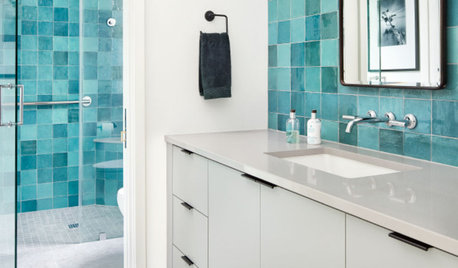
TILEPorcelain vs. Ceramic Tile: A Five-Scenario Showdown
Explore where and why one of these popular tile choices makes more sense than the other
Full Story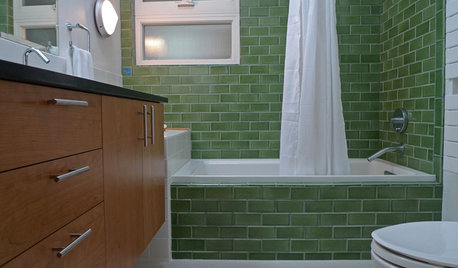
BATHROOM DESIGNBathroom Surfaces: Ceramic Tile Pros and Cons
Learn the facts on this popular material for bathroom walls and floors, including costs and maintenance needs, before you commit
Full Story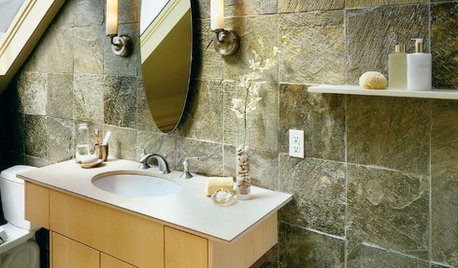
REMODELING GUIDESGet Stone and Ceramic Surfaces Super Clean
Keep your kitchen or bathroom looking as good as on installation day with the right cleaning methods for counters and tiles
Full Story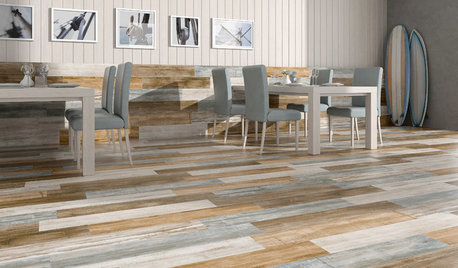
TILETop Tile Trends From the Coverings 2013 Show — the Wood Look
Get the beauty of wood while waving off potential splinters, rotting and long searches, thanks to eye-fooling ceramic and porcelain tiles
Full Story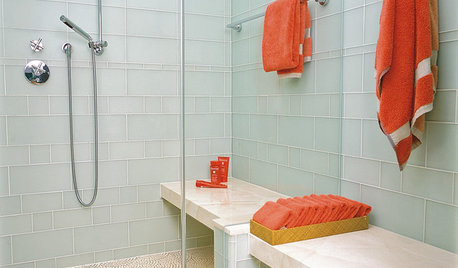
REMODELING GUIDESHouse Planning: How to Choose Tile
Glass, Ceramic, Porcelain...? Three Basic Questions Will Help You Make the Right Pick
Full Story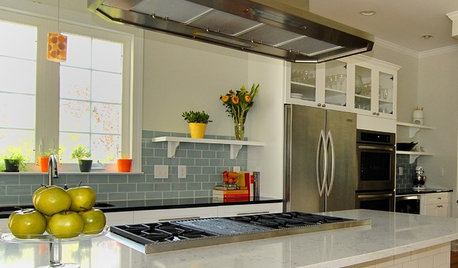
KITCHEN DESIGNGet Quartz and Porcelain Surfaces Super Clean
These cleaning tips for quartz, travertine, porcelain and engineered stone will help keep your countertops and sinks looking spotless
Full Story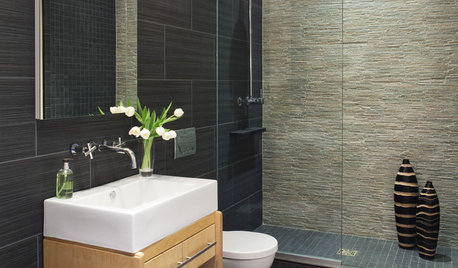
REMODELING GUIDESChoosing Tile: Durable, Versatile Porcelain
Get the Look of Stone, Metal, Terracotta and More With Today's Porcelain Tile
Full Story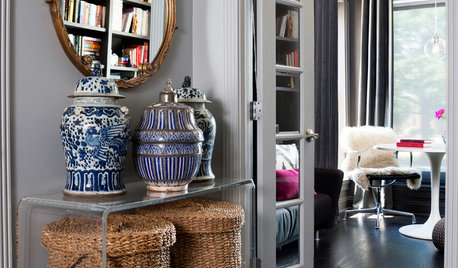
ACCESSORIES9 Fresh Ways to Use Classic Blue and White Ceramics
Add a crisp, clean touch to a room with a china or porcelain jar — or a collection of them
Full Story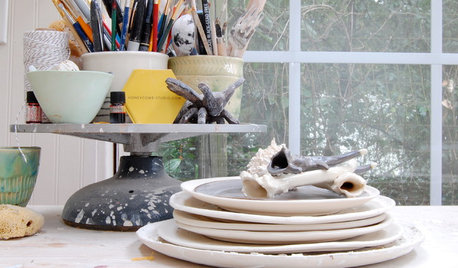
OUTBUILDINGSStudio Tour: From Old Shed to Sunny Ceramics Workshop
Elegant porcelain antlers and more now emerge from an Atlanta outpost where critters once roosted
Full Story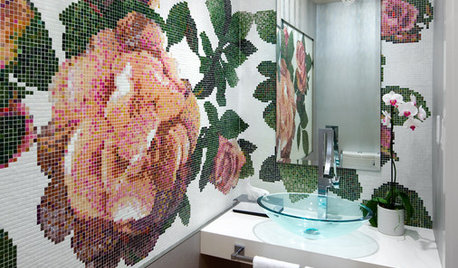
DREAM SPACESDream Tile, Sensational Style
From intricate mosaics to large-scale porcelain, splurgeworthy tiles create a luxurious air in the bath and beyond
Full Story







sjhockeyfan325
kudzu9
Related Professionals
Corcoran Kitchen & Bathroom Designers · Wentzville Kitchen & Bathroom Designers · Chicago Ridge Kitchen & Bathroom Remodelers · Ewa Beach Kitchen & Bathroom Remodelers · Chicago Glass & Shower Door Dealers · Lakewood Glass & Shower Door Dealers · Brea Cabinets & Cabinetry · Drexel Hill Cabinets & Cabinetry · Lakeside Cabinets & Cabinetry · Vermillion Cabinets & Cabinetry · Wadsworth Cabinets & Cabinetry · Saint James Cabinets & Cabinetry · Los Angeles Window Treatments · Palm Beach Gardens Window Treatments · Riverside Window Treatmentsandy_m
StoneTech
aknallOriginal Author
jewelisfabulous
MongoCT